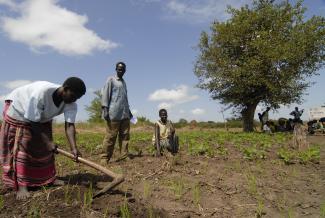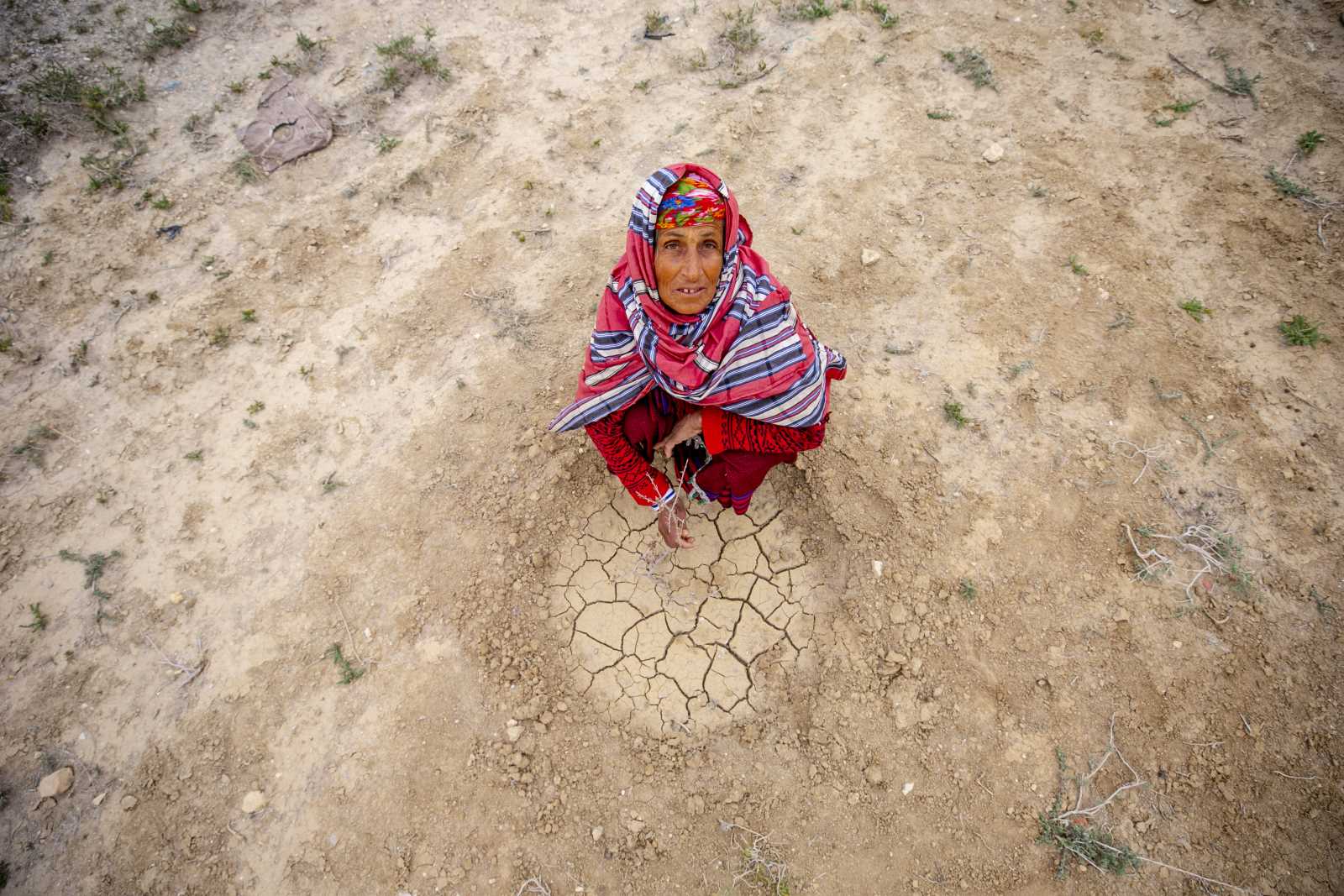Fight against hunger
NGO demands stronger G7 commitment

Despite the decades-long fight against hunger with billions invested, more than 800 million people still suffer hunger or malnourishment, according to Welthungerhilfe. Addressing a conference hosted by the organisation in Berlin in February, Bärbel Dieckmann, its president, said: “The industrialised countries will have to increase their financial support” in order to translate good will and fine words into effective action.
The main problem is not a lack of food but unfair distribution. Gerd Müller, Germany’s federal minister for economic cooperation and development, acknowledges that “the G7 countries are using 80 % of the global resources”. This must change, he insists. The nations “on the sunny side of life” have an obligation to ensure fairness, according to him. He says Germany should promote the cause of ending hunger among the G7. This aspiration will also likely be one of the Sustainable Development Goals (SDGs), a set of future international development goals to be adopted by the UN in September 2015.
Gerda Verburg, chair of the intergovernmental Committee on World Food Security, stresses that governments’ commitment is the crucial factor for success. In her eyes, the SDGs will be worthless unless they are translated into national and local policies.
Elias Geneti Simma, president of the Addis Ababa Chamber of Commerce, bemoans that hunger is on the agenda of every international summit, but afterwards practical implementation tends to be lacking. “Focus more on implementation”, he demands. Furthermore, the Ethiopian points out that it is essential to involve smallholder farmers with their valuable experience in any meaningful policies.
The most important farmers
Many international experts agree that smallholders’ knowledge of local methods, soil, traditional farming et cetera is essential. Accordingly, the Berlin Memorandum, which was launched at the conference in Berlin, calls for focusing on their needs and potentials. It was drafted by civil-society activists, scholars and private-sector managers from Bolivia, Burkina Faso, Ethiopia, India and Germany and spells out recommendations to the G7 nations.
According to the paper, smallholders provide more than 70 % of food in developing countries and thus play the most important role in world food security. Furthermore, they ensure social cohesion through providing nutrition, care for children, old people and the weakest in the community. Small farming families stabilise rural society and safeguard culture and tradition.
They also account for two thirds of all agricultural investment, as Alemayehu Diro Lalise, another Ethiopian contributor to the Berlin Memorandum, points out. In contrast to industrialised agriculture, the production patterns of smallholders require much less fossil energy inputs and use more diverse crops, cultivars and breed. Such diversity boosts resilience, Lalise says: “If one crop fails, they have all kinds of alternative.”
His Indian colleague Rajeswari Raina stresses the fact that smallholders “produce food, but not enough”. Therefore they need support and investment. According to data from the UN Human Rights Commission, up to 80 % of the extremely poor live in rural areas. For their food they usually depend on self-subsistence and the small farms in their area. Degraded land and the effects of climate change lead to less food production and water shortage. Another important factor is reduced biodiversity of crops and local breeds, that often translates into a less diverse diet. In many cases, children and women are suffering the most from such economic losses, poverty and hunger. They deserve particular attention.
Make rural livelihoods attractive
Welthungerhilfe and its partners want the position of small farmers to be strengthened politically and financially at three levels:
- The rights of small farmers, for example to land and water, are insufficiently secure.
- There are too few opportunities to generate supplementary incomes in rural regions.
- Small farms depend on diverse ecosystems, but such ecosystems are not protected to the extent needed.
In short, the challenge is to make rural livelihoods profitable, sustainable and attractive. If that is accomplished, young people will stay in the villages instead of migrating to the cities, where they often end up in slums. Ashish Gupta who works with farmers in the Northern Indian state of Himachal Pradesh says that, when village children are asked what they want to be when they grow up, none of them says “farmer”. Gupta explains: “They see their parents suffer, and that must change.”
Welthungerhilfe criticises the New Alliance for Food Security and Nutrition, an initiative launched by G8 – then still including Russia – in 2012. The NGO argues that the Alliance is leaving responsibility in the fight against hunger to agribusiness. The organisation wants Germany to take the lead at this year’s G7 summit in order to bring about a new initiative for the G7 nations to rise to their responsibility. According to calculations by the UN Food and Agriculture Organization (FAO) and Welthungerhilfe, some $ 31.3 billion of official development assistance (ODA) is needed annually. Currently, the G7 – the most substantial donors – only provide a third of this sum.
Katja Dombrowski
Links:
Welthungerhilfe: http://www.welthungerhilfe.de/en/home-en.html
The Berlin Memorandum for download: http://www.welthungerhilfe.de/fileadmin/user_upload/Themen/POWA/Termine/5_Berlin_Memorandum_on_sustainable_livelihoods_for_smallholders_2015.pdf















